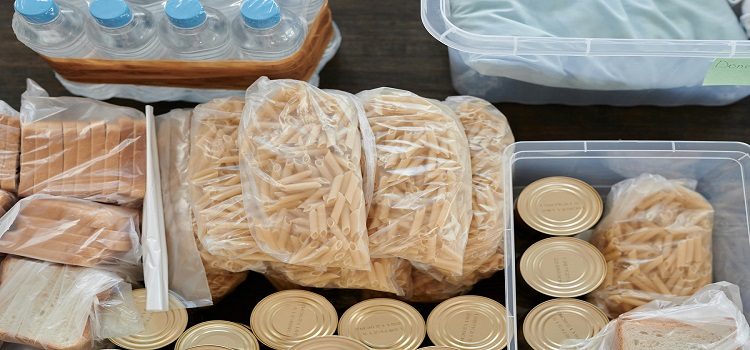As an Amazon Associate I earn from qualifying purchases.
Exploring the Pros and Cons of Vacuum Sealing Food
Introduction: Vacuum sealing has revolutionized the way we preserve food, offering airtight storage that extends shelf life and maintains freshness. However, like any method, it comes with its own set of pros and cons. Let’s dive into the advantages and disadvantages of vacuum sealing food to help you decide if it’s the right choice for your kitchen.

Uses: Vacuum sealing is incredibly versatile and can be used for:
- Preserving meats, fruits, vegetables, and leftovers
- Sous vide cooking
- Preparing meals in advance for busy weeknights
- Storing non-food items like documents and clothing to protect them from moisture and pests
Benefits:
- Extended Shelf Life: Vacuum sealing removes air from the packaging, preventing oxidation and freezer burn, which significantly extends the shelf life of food.
- Preservation of Freshness: By creating an airtight seal, vacuum sealing helps maintain the natural flavors, textures, and nutrients of food, ensuring it tastes as fresh as the day it was sealed.
- Cost Savings: With vacuum sealing, you can buy food in bulk, portion it out, and store it for later use, reducing waste and saving money in the long run.
How to Do It:
- Prepare the food for sealing, ensuring it’s clean and dry.
- Place the food in a vacuum-sealed bag or container, leaving enough space at the top for sealing.
- Use a vacuum sealer to remove the air from the package and seal it tightly.
- Label the package with the date and contents for easy identification.
- Store the sealed packages in the refrigerator, freezer, or pantry as appropriate.
Pros and Cons Table:
| Pros | Cons |
| Extends shelf life | Initial cost of equipment and bags |
| Maintains freshness | Limited to certain types of foods |
| Reduces food waste | Requires storage space for equipment |
| Ideal for bulk food preparation | Not suitable for liquids or soft foods |
| Versatile for various storage needs | Potential for bags to puncture or tear |
FAQ:
- Can you vacuum seal liquids?
- While it’s possible to vacuum seal liquids using special techniques or equipment, it’s generally not recommended due to the risk of leakage or suctioning liquid into the vacuum sealer.
- How long does vacuum-sealed food last?
- Vacuum-sealed food can last significantly longer than traditional storage methods, with some foods remaining fresh for up to five times longer in the refrigerator or freezer.
- Can you reuse vacuum-sealed bags?
- Vacuum-sealed bags can be reused as long as they are cleaned and sanitized thoroughly between uses to prevent cross-contamination.
- Is vacuum sealing safe for storing raw meats?
- Yes, vacuum sealing is a safe method for storing raw meats, as it helps prevent bacterial growth and contamination.
- Can vacuum-sealed food be microwaved?
- Yes, vacuum-sealed food can be microwaved, but it’s important to follow the manufacturer’s instructions and carefully monitor the heating process to avoid damaging the packaging.
- Does vacuum sealing affect the taste of the food?
- Vacuum sealing helps preserve the natural flavors of food, ensuring it tastes fresh and delicious even after prolonged storage.
- Can you vacuum seal freshly cooked hot food?
- It’s not recommended to vacuum seal hot food as it can create condensation inside the package, which may affect the sealing process and compromise the food’s quality.
- Can vacuum sealing prevent freezer burn?
- Yes, vacuum sealing creates an airtight seal that prevents exposure to air and moisture, reducing the risk of freezer burn and maintaining the quality of frozen food.
- Is vacuum sealing environmentally friendly?
- While vacuum sealing can help reduce food waste by extending the shelf life of perishable items, it does require the use of plastic bags or rolls, which can contribute to environmental waste if not disposed of properly.
- Can you vacuum seal delicate foods like berries?
- Yes, delicate foods like berries can be vacuum sealed using gentle settings on a vacuum sealer to prevent crushing or damage.
Conclusion: Vacuum sealing food offers numerous benefits, including extended shelf life, preservation of freshness, and reduced food waste. However, it’s essential to consider the initial cost of equipment and bags, as well as the limitations on certain types of foods. By weighing the pros and cons, you can determine if vacuum sealing is the right choice for your food storage needs.
As an Amazon Associate I earn from qualifying purchases.
Leave a Reply